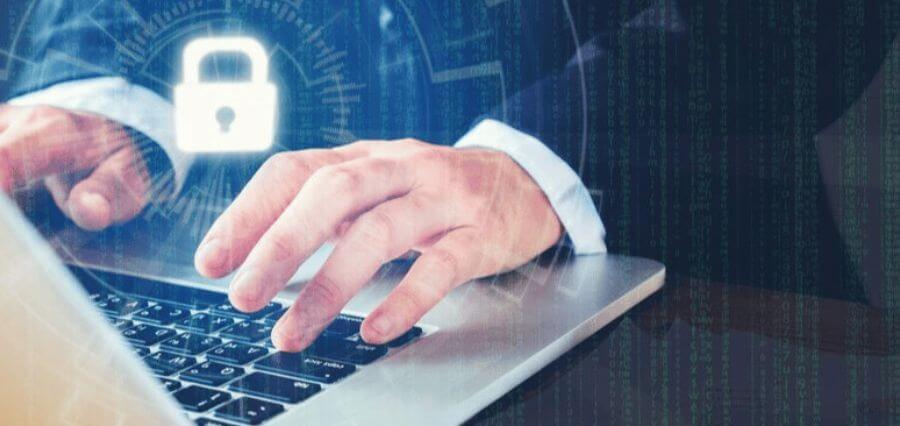If you’ve ever sat down in a café or airport to get some work done or chat online with your friends, you’ve likely connected to a public Wi-Fi hotspot. Public hotspots are a preferred way for hackers to target unassuming victims while they use their devices. In their 2022 Data Breach Investigations Report, Verizon noted that 81% of incidents that resulted in data disclosure were caused due to web application attacks and system intrusion, along with other errors.
As you can imagine, connecting to public Wi-Fi is not the smartest thing to do if you wish to keep safe against hackers. There are many options to consider regarding safeguarding your online privacy and security, including best practices while going online and what tools you can utilize to boost your security, such as using a VPN free download for PC.
Know thy enemy
It is difficult to avoid something if we don’t know what we are dealing with in the meantime. A hacker is a technological specialist who uses their knowledge of computers, networks, or other technical systems to find an unconventional solution to a problem. We also use the phrase to describe criminals who use their abilities to steal people’s data or obtain unauthorized access to systems.
Hackers may also employ psychological tricks to fool users into disclosing information or granting access to their devices. It is referred to as social engineering, and falling for these targeted attacks is effortless if you don’t know what to look out for in hackers.
How valuable is my data?
Whether you believe it or not, your device holds many valuable data that hackers can use for malicious purposes or sell for financial gain. It includes Personally Identifiable Information (PII), emails, social media activity, and browsing habits.
Personally Identifiable Information
PII, as its name suggests, is any data that can be used to identify you. Your name, home and email addresses, date of birth, relationship status, details about your family, education, career history, social security number, and even medical records could be included. By making purchases online, you risk giving hackers access to your credit card details, expiration dates, and secret codes.
This information is dangerous in the wrong hands because hackers can take control of your internet accounts and steal your identity with all this info at their disposal. They can steal funds from your bank, keep tabs on your transactions, obtain a credit card in your name, make purchases, or sell your data on the dark web.
Email and socials
Email, while still an effective communication tool, provides access to your registered accounts.
It makes for the ideal source of personal communications, including private media, confidential business documents, and more, when combined with social media.
A breach of an email account grows worse as more reports are affected. Additionally, any of your contacts or private communications, including various media, could fall into the wrong hands.
Browsing habits
Your internet service provider keeps an eye on your activity, and website cookies and browser add-ons can keep track of the pages you visit.
When it comes to targeted advertising, such methods are intrusive and often go too far. Cookies will transmit your information across various platforms and devices without your knowledge.
The basics of cyber-hygiene
You should be wary if you notice apps you don’t remember downloading or too many pop-ups appearing on your device. Phishing pop-ups and decreased device performance are two telltale signals that something is awry – and malware from hackers is often the cause.
Here are a few steps you can take to protect yourself against hackers better:
Secure your connection with a VPN
An open network is very susceptible to cybersecurity threats and is simple to exploit.
Keep this in mind, and unless you use a virtual private network, refrain from making online purchases or accessing any personal or financial data when using public Wi-Fi.
A VPN establishes a private, encrypted gateway to the internet without logging your activity. It enables you to browse secretly or anonymously by masking your online activity. You can stream, play, and shop online safely thanks to this and an additional degree of security for internet connections, whether you’re utilizing private or public Wi-Fi.
Two-factor authentication
It is also known as Multifactor Authentication or Two-Step Authentication. Whatever the name, all of them refer to taking an additional step when reputable websites and applications ask you to verify that you are who you say you are. The application can confirm you by asking for two forms of information rather than a password, which can be reused, more easily broken, or stolen.
Don’t trust every link
You may open your email to notice a link that seems slightly off. It appears to be something you’ve seen, but it demands a password change. Or perhaps it requests that you confirm personal data. The link is likely part of a phishing scheme, a deceptive method used by criminals to mislead you into disclosing important information like your passwords or banking details. They can use such information on trustworthy websites once they obtain it. Additionally, they might try to persuade you to run harmful software, such as malware.


